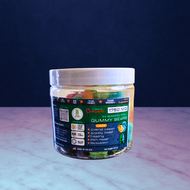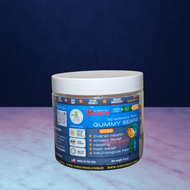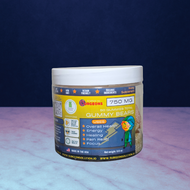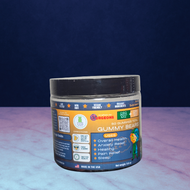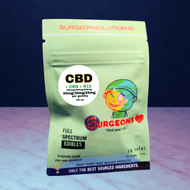Surgeons Online Cannabinoid Academy
The Reliability of Urine Drug Tests For THC
Urine drug tests are the most widely used screening method for detecting THC and its metabolites, offering a cost-effective and practical approach. However, their reliability comes with nuances, particularly for users of CBD and cannabinoid-enriched products. Understanding how these tests work, what can trigger positive results, and how to mitigate risks is essential for those concerned about drug testing. This article explores the science of urine drug testing, potential pitfalls for CBD users, and the methods people employ to pass these tests, along with their efficacy.
How Urine Drug Tests Work
Urine drug tests detect THC-COOH, the primary metabolite of THC, formed as the body processes tetrahydrocannabinol. This lipid-soluble compound is stored in fat cells and slowly released into the bloodstream, making it detectable in urine for days or even weeks after use. The standard cutoff for THC-COOH detection is 50 ng/mL, as set by the Substance Abuse and Mental Health Services Administration (SAMHSA).
Although effective for identifying THC use, urine tests cannot differentiate between marijuana-derived THC and trace THC from legal CBD products. For individuals using full-spectrum CBD, which contains up to 0.3% THC, the cumulative effect of regular use can lead to detectable levels of THC-COOH, raising the risk of a positive result.
Factors Influencing Test Outcomes
Several variables determine whether THC-COOH levels exceed the test threshold, including:
- Frequency of Use: Regular or high-dose use of full-spectrum CBD products increases THC accumulation.
- Metabolism: Individuals with slower metabolic rates may retain THC metabolites longer.
- Body Composition: THC-COOH binds to fat cells, making those with higher body fat more susceptible to prolonged detection.
- Test Sensitivity: Advanced tests with lower thresholds may detect even minimal THC-COOH levels.
- Mislabeling of Products: Inconsistent labeling can result in unintentional THC consumption.
Cannabinoids That May Trigger Positive Results
While THC is the primary target of drug tests, other cannabinoids may also cause issues. These include:
- Delta-8 THC: Structurally similar to Delta-9 THC and found in hemp-derived products, it can produce psychoactive effects and trigger positive tests.
- Delta-10 THC: Another THC isomer with psychoactive properties, increasingly found in niche cannabinoid products.
- CBN (Cannabinol): A byproduct of THC degradation, potentially causing false positives in certain tests.
- THCV (Tetrahydrocannabivarin): Though less psychoactive, it may occasionally cross-react in screenings.
Precautions to Minimize Risks
For CBD users, taking steps to avoid a positive test result is crucial:
- Opt for THC-Free Products: Use CBD isolates or broad-spectrum CBD products that explicitly state "non-detectable THC" and provide lab results to verify their claims.
- Limit Usage: Reducing the frequency and dosage of full-spectrum CBD products minimizes THC exposure.
- Verify Product Quality: Choose products with Certificates of Analysis (COAs) from reputable third-party laboratories, confirming cannabinoid profiles and THC levels.
- Communicate with Employers: If drug testing is a concern, discuss CBD use with employers or testing agencies to clarify policies.
- Be Informed: Stay updated on testing methodologies and state-specific CBD regulations to make informed decisions.
Methods to Pass Urine Drug Tests
Over the years, individuals have employed various remedies to beat urine drug tests. Some of the most common include:
- Detox Drinks: These aim to flush THC metabolites out of the system or mask their presence temporarily. Products like Certo (fruit pectin) are popular but unreliable, as they depend on individual metabolism.
- Dilution: Drinking excessive water dilutes urine, lowering THC-COOH concentration. However, labs can detect overly diluted samples and may request a retest.
- Synthetic Urine: High-quality synthetic urine mimics real urine, often used in unsupervised tests. While effective, the risk of detection is high in monitored settings.
- Activated Charcoal: Claimed to bind to THC metabolites in the digestive tract, this method lacks robust scientific backing.
- Exercise and Diet: Burning fat through exercise may release stored THC-COOH, but timing is critical, as it could temporarily increase detectable levels.
Of these methods, detox drinks and synthetic urine have shown the most historical success but come with significant risks, particularly in supervised testing environments.
Limitations and Evolving Testing Techniques
Urine tests, while effective, have limitations. False positives can occur due to cross-reactivity with other substances, including certain medications (e.g., ibuprofen, naproxen) or dietary supplements. Advances in testing technology aim to reduce these errors, but challenges persist. For CBD users, the variability in product quality and test accuracy necessitates vigilance and proactive measures.
Conclusion
Navigating the intersection of CBD use and urine drug testing requires informed decision-making. By understanding the intricacies of drug screening methodologies, selecting high-quality CBD products, and adopting precautionary measures, individuals can reduce the risk of unintended positive results. As the CBD industry evolves, ongoing research and regulatory advancements will provide greater clarity and security for consumers.


